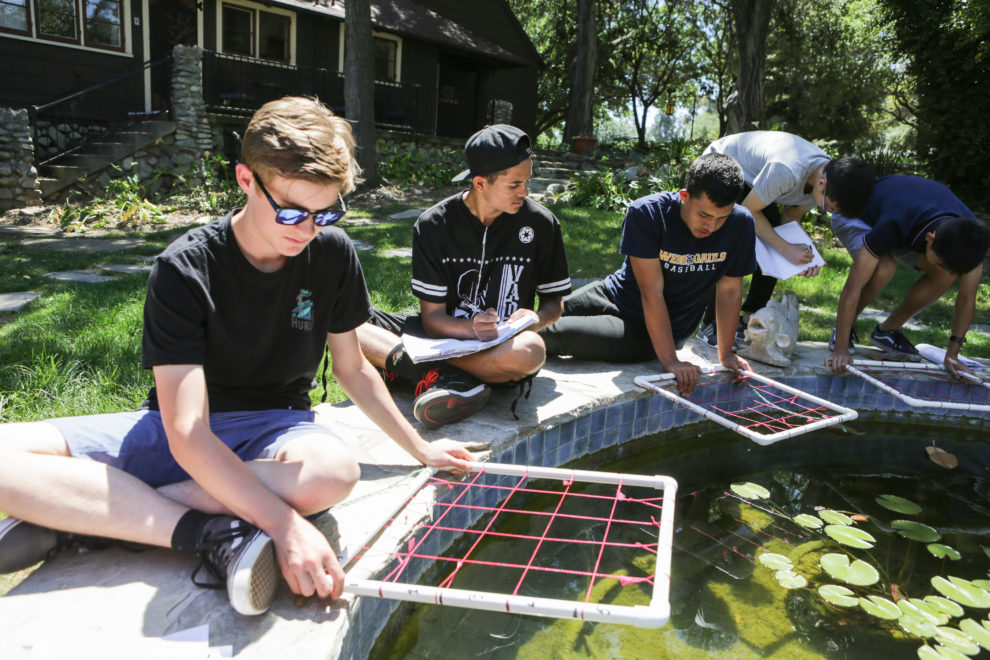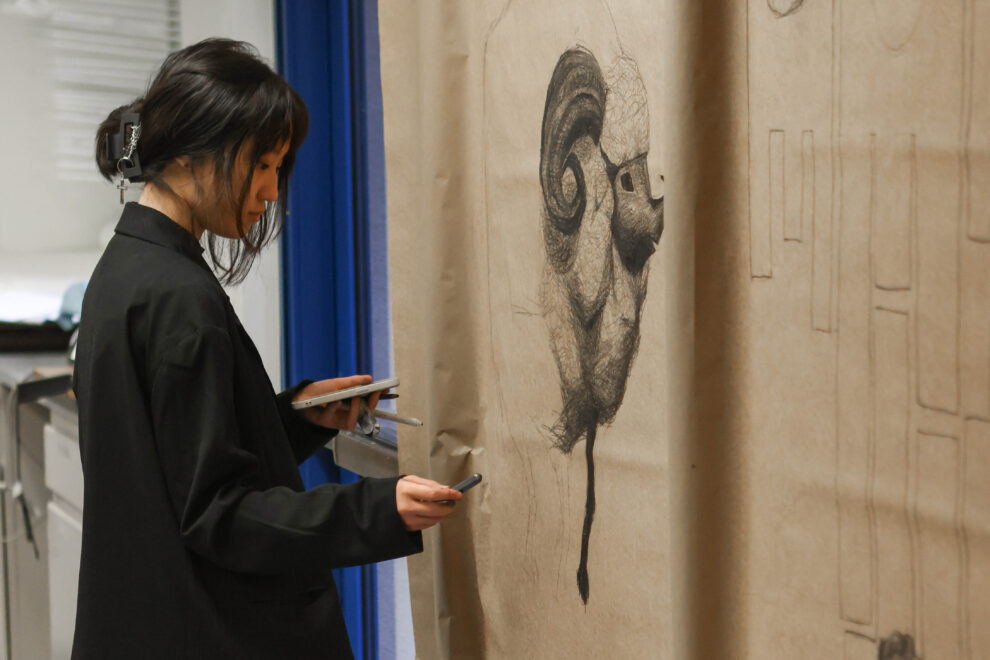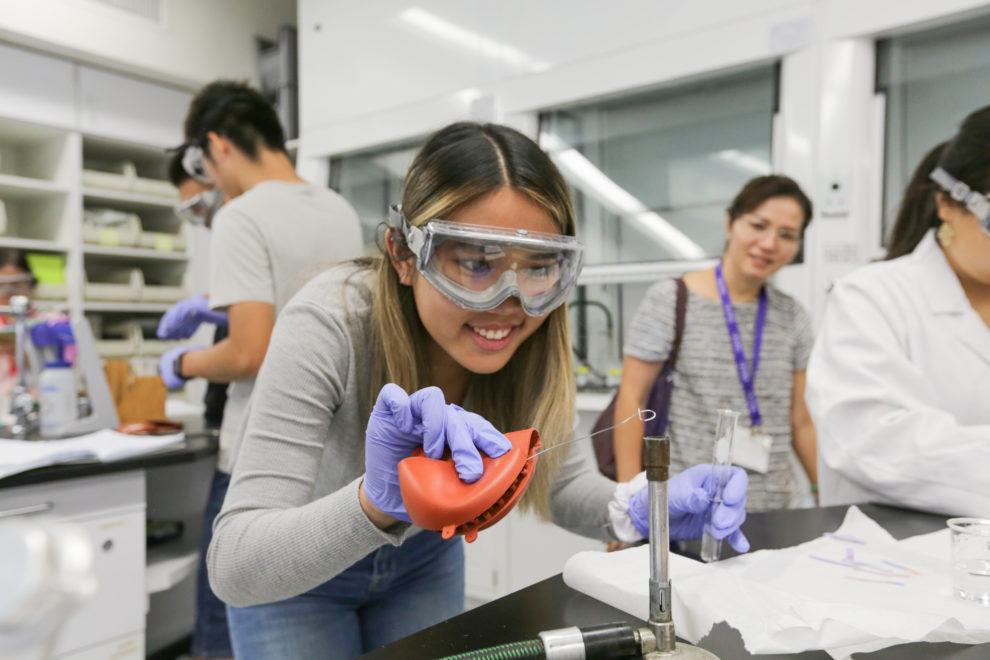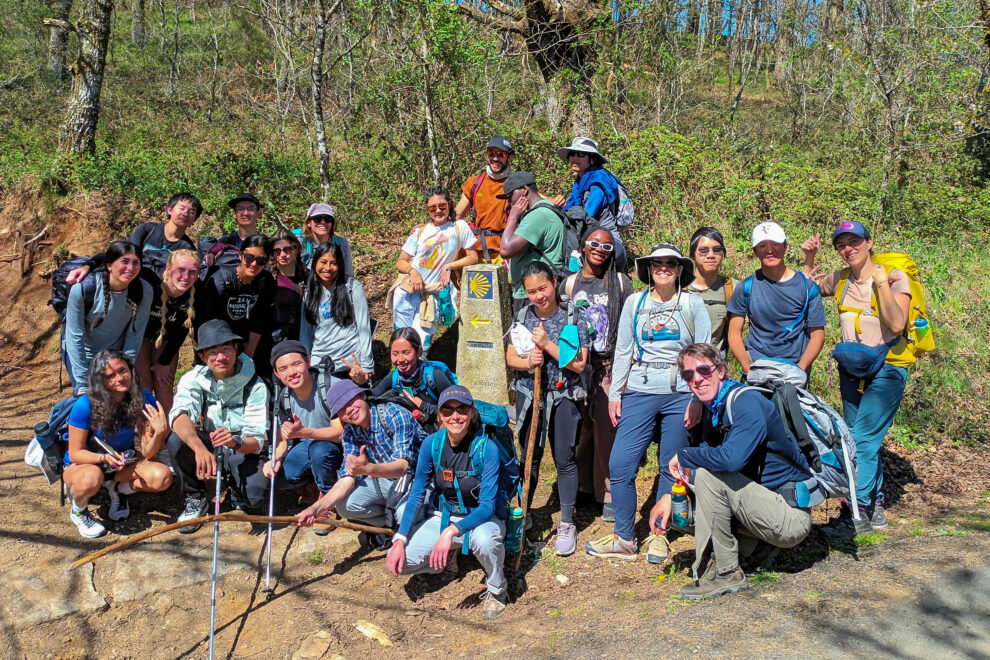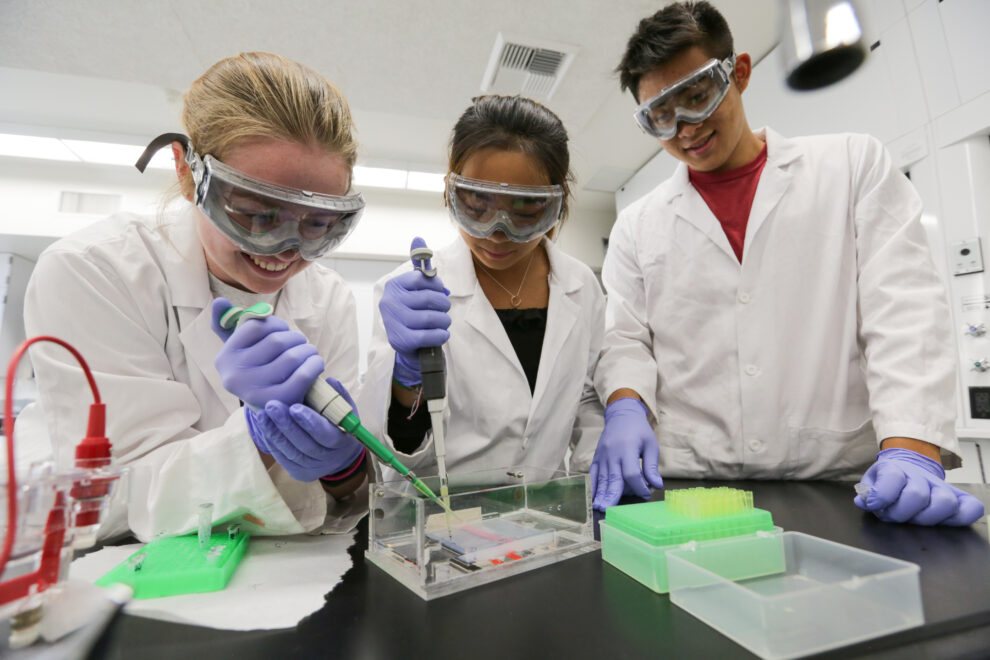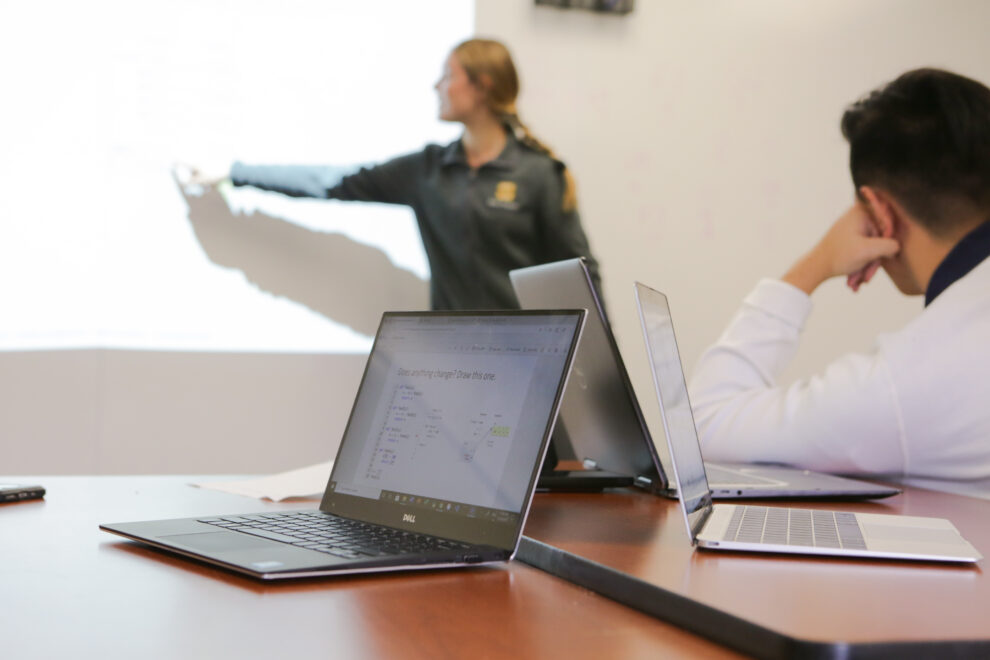Studying At Webb
The Unbounded Thinker
Webb’s immersive educational experience is one of a kind. We foster unbounded thinkers who learn and explore traditional and emerging disciplines, master skills essential to achievement in college and beyond, and embody such vital attitudes as curiosity, love of learning and a commitment to what is right and true.
Beyond the academic day, students might join the extraordinary robotics team, learn about and compete in debate, perform in the spring musical or compete in one of 15 sports on the athletic field.
Studying At Webb
At A Glance
Academic Leadership
Webb’s faculty is assisted in its delivery if an unbounded curriculum by an Academic Council that includes key academic directors and chairs of Webb’s academic departments. Together, the council helps to advise Webb leadership on faculty needs and guide faculty in their commitment to creating the most dynamic educational experience possible.
As director of studies, Peter Hatala ensures that the academic program aligns with Webb’s mission and philosophy and that every department and discipline thinks through a program that encourages unbounded thinking, real-world application and “learning by doing.”
Mr. Hatala earned his BA in English from the University of Massachusetts Boston. He then earned an MA in History from SUNY Albany, an MAT in History from Bard College, and finally, earned his third master’s degree (an M.Ed in Private School Leadership) from Klingenstein Center at Teacher’s College at Columbia University.
He lives on campus with his wife, Bonnie, and his two dogs, Arjuna and Birdie.
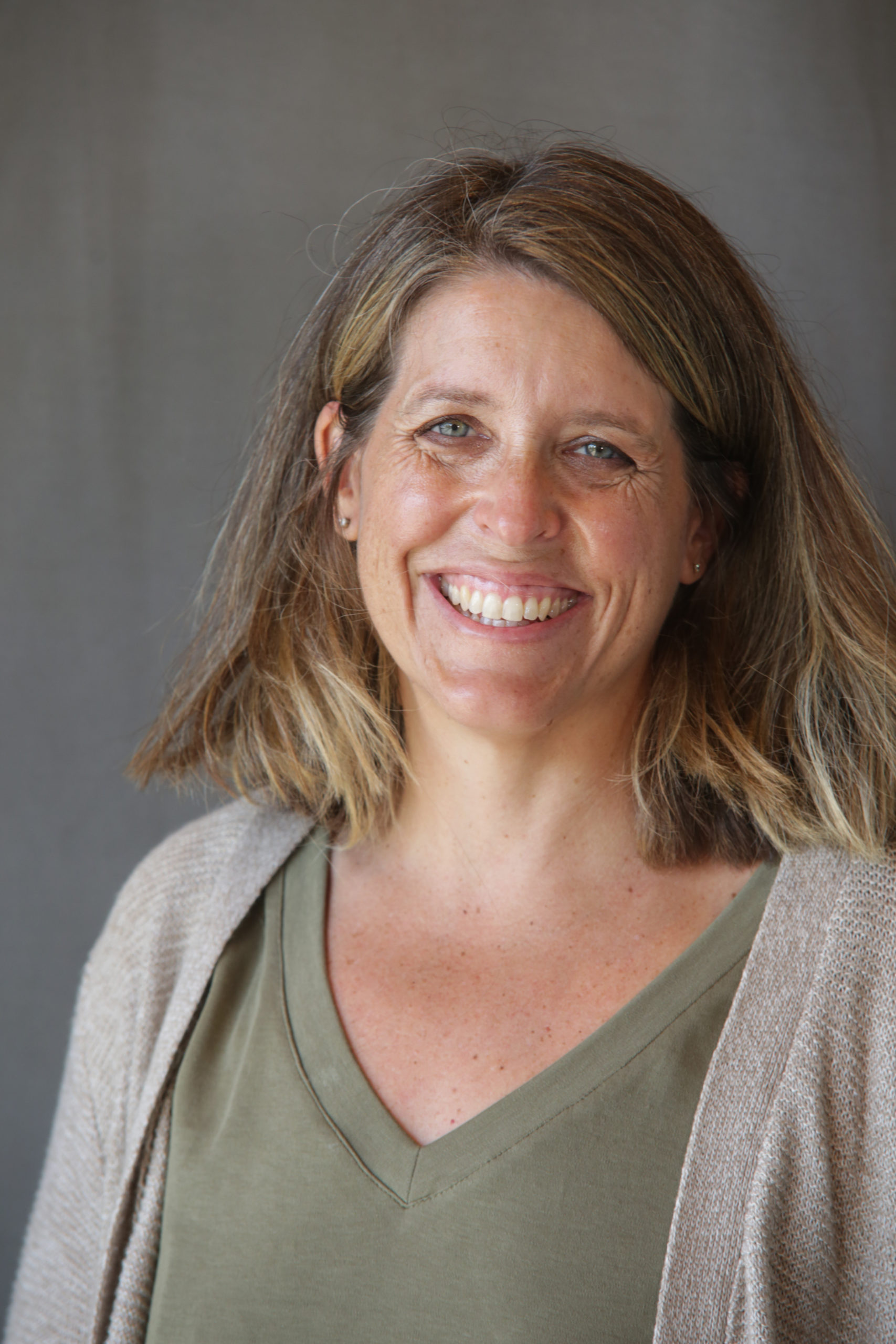
As director of experiential learning, Susanna champions Webb’s mission of unbounded learning. She supports teachers in imagining hands-on and relevant projects and activities in their classrooms and arranging field studies connected to their curriculum. She leads Webb’s Unbounded Days program, promotes international and domestic travel during breaks and directs the Webb Junior Scholars Summer Program.
Susanna also teaches in Webb’s humanities department.
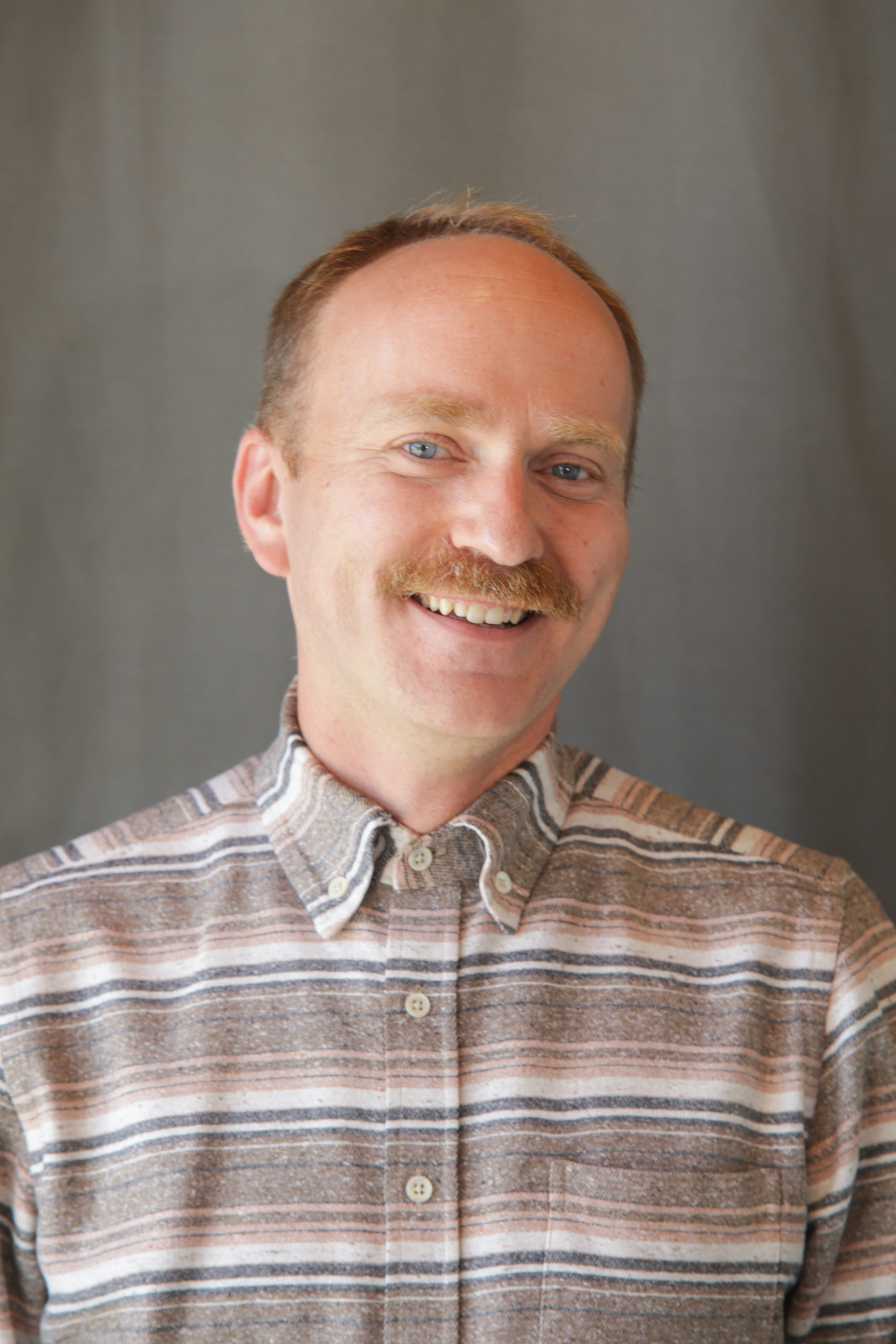
As director of teaching and learning resources, Mark coordinates with faculty to ensure that they have cutting-edge tools to achieve pedagogical goals with students. From print resources to online databases and tech tools to supplies, Mark ensures that Webb is ready to meet unbounded thinkers and assist them wherever their academic journey may lead.
Mark also manages Fawcett Library, an academic hub that emphasizes the social nature of education and values student expression, thus amplifying and nurturing campus culture.
Mark’s teaching focus at Webb includes the journalism program and Webb Canyon Chronicle, the student news publication.
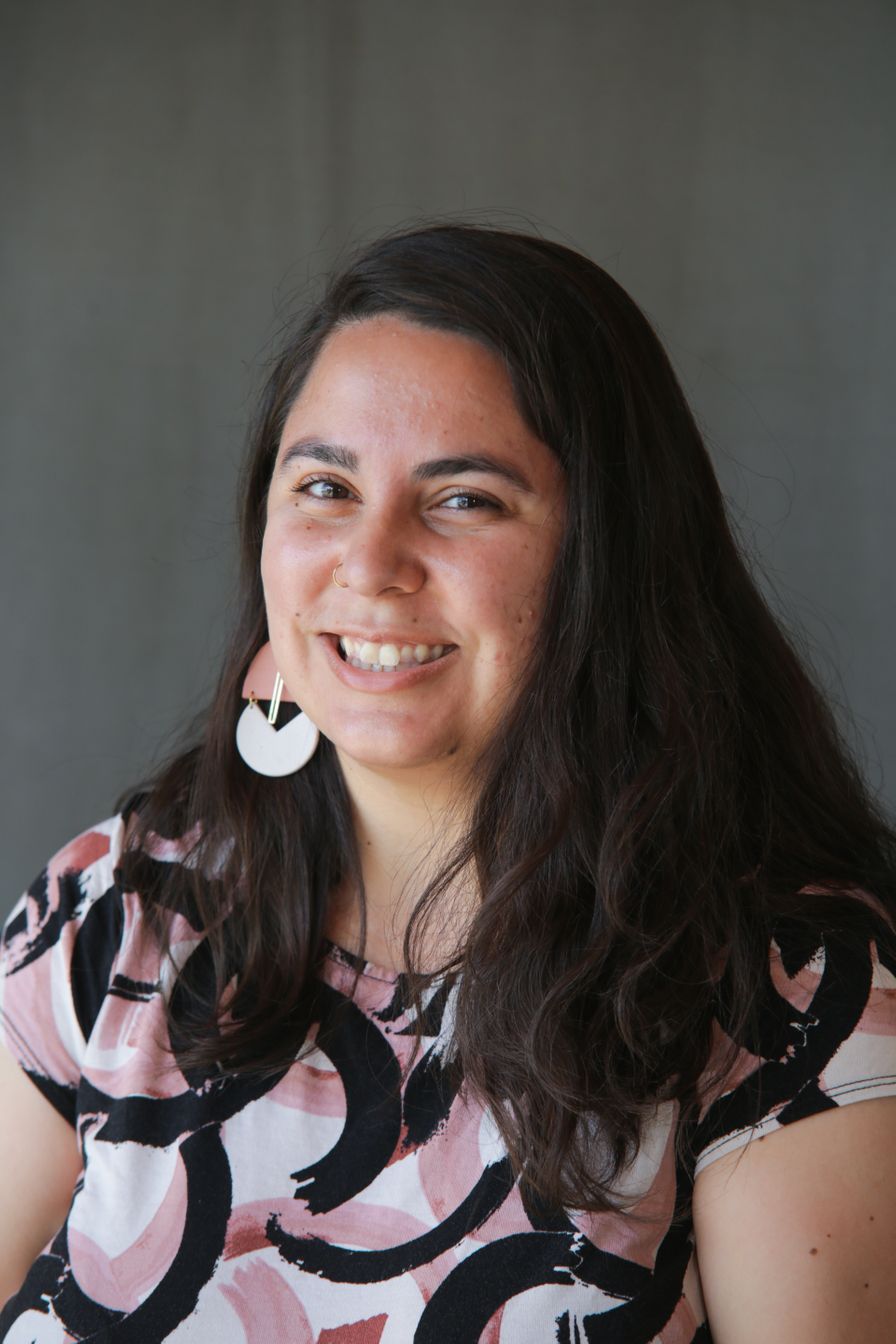
As registrar, Briar Rose creates the academic schedule for students and teachers, keeps all student and alumni transcripts and grade reports and coordinates record sharing with other schools. She maintains Webb’s student information system and is also the Advanced Placement coordinator for Webb.
Briar Rose is also a VWS advisor and head of Webb’s Jameson Dorm.
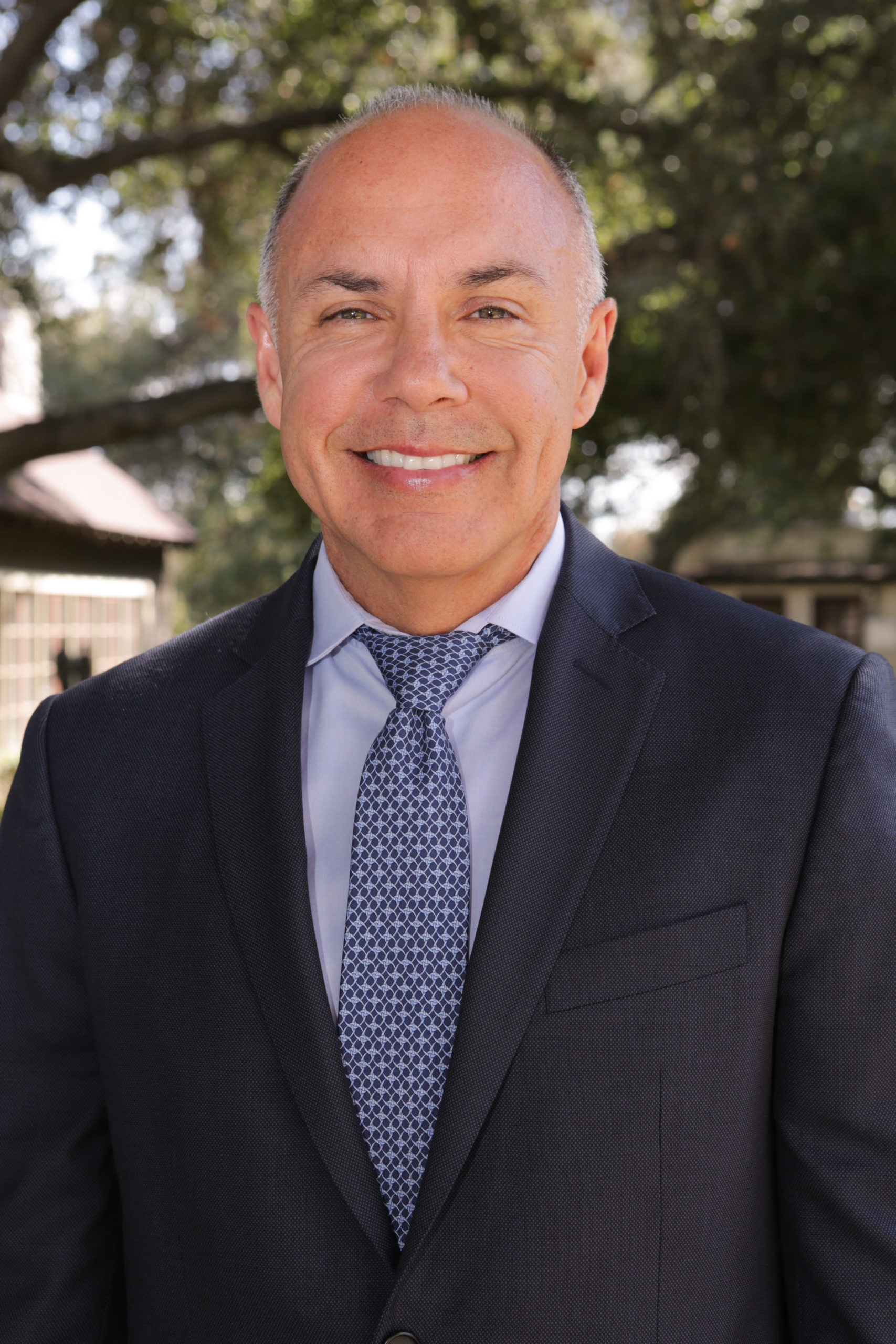
Hector Martinez brings more than 35 years of experience in education and college admissions to his role as dean of college guidance, including 25 years at The Webb Schools.
Hector is an active member of several national professional organizations, including serving as co-chairman of the National College Board Forum. He is also a founding member of the board of trustees for ACCIS (Association of College Counselors in Independent Schools) and has served as an executive member of the Guidance and Admissions Council for The College Board and NACAC.
Considered one of America’s most respected and knowledgeable college counselors, Hector is frequently featured and quoted in such publications as the Los Angeles Times, New York Times, Newsweek, U.S. News and World Report and The Wall Street Journal, where he was selected as one of the top 40 college counselors in the U.S.
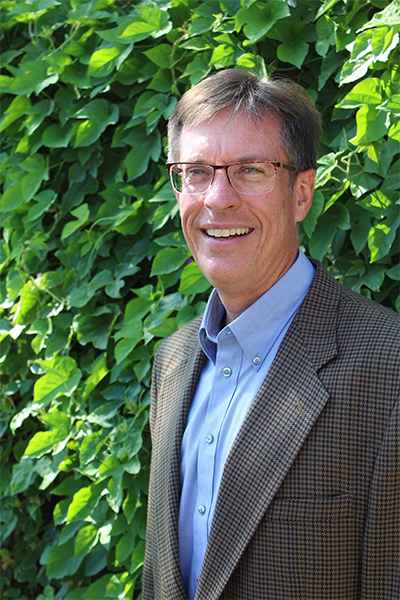
During his 20-plus years as director of technology, Tim has at some point been a member of the Fine Arts, History, Science and Math departments. Tim has developed technology-related courses and mentored faculty in a variety of disciplines, from computer science to digital media. He was an integral part of designing and implementing the technology around campus on projects like our Copeland Donahue Black Box Theater, the Susan A. Nelson Performing Arts Center and the modernization of our classrooms. Tim champions raising community awareness on emerging trends in technology. Our director of technology’s unbounded approach to education isn’t contained to the classroom as he has developed numerous workshops and events covering topics such as cyber security, cryptography, digital synthesizers and electronic animatronics.
Innovative Curriculum
Discovery Learning with
Rigorous Scholarship
Whether in the science lab or the humanities classroom, our faculty guide students in an active learning environment that allows them not only to acquire a core body of knowledge but also teaches them how to inquire and investigate using the latest methods of scholars and researchers.
Studying At Webb
Frequently Asked
Questions
For a complete listing of required classes you can consult our Course of Study, which also serves as a course selection guide In addition to subject-specific requirements, 9th-grade students are required to take three core classes: Foundations of Civilization a one-semester course on the politics, economies, religions, social norms and artistic-intellectual production of cultures around the world; Fundamentals of Composition is a one-semester course that provides an immersive introduction to multidisciplinary thinking, critical analysis and writing, speaking, presentation and debate; and Evolutionary Biology is a two-semester course that explores Earth’s history, the history of life and evolution in geological time and modern genetics research and theory.
Tenth-grade students, in addition to subject-specific requirements, also participate in three core classes: The American Idea is a one-semester course that focuses on the question of what makes an American text or artwork “American”; American Society, Past & Present is a one-semester course that looks at American attempts to create an ideal society and balance the conflicting interests of a diverse nation; and Integrated Physics & Chemistry is a two-semester course that introduces students to the study of matter, chemical reactions and energy, and then builds on those concepts to explore more advanced ideas like thermodynamics and the quantum structure of atoms.
A selection of courses at Webb are more rigorous and thus carry an Honors, Advanced Placement (AP), or Advanced Studies (AdvSt) designation. Honors courses differ from standard sections by incorporating advanced content. AP courses adhere to the content and methods prescribed by the College Board for that subject and include test-preparation activities and practice. AP-level classes and Advanced Studies courses (designed by Webb faculty) engage students in high-level intellectual pursuits; they are characterized by their depth of study, their embrace of the latest in academic research and their attention to making connections among disciplines. Learn more in Webb’s Course of Study, which serves as a course selection guide.
The Webb Schools are committed to providing you with the support you need to achieve success at all levels of our academic program. Your primary source of assistance and guidance is your classroom teacher, and you may attend faculty office hours (offered four times per week) or schedule appointments to meet individually or in small groups with teachers before school, in a common free period, at lunch or outside the academic day. There are also evening labs in nearly all subjects during the week. All of these sessions can be used to review course content, improve study skills, prepare for tests or get help on an assignment. You may also team up with peer study partners to give and get support with classwork and exam prep. In addition, Webb maintains a tutor pool of approved and vetted tutors who are cleared to work on campus. Webb outlines its academic program in a course selection guide called the Course of Study.
Webb offers a host of co-curricular programs in a range of disciplines, including dance, debate, music, paleontology, robotics, theater and studio art. Webb also provides opportunities for students to extend their education beyond campus through experiential programs such as our trips program, which offers domestic and international trips during school breaks and in the summer, and our bi-annual Unbounded Days, which offers immersive, collaborative, relevant experiences that connect the classroom to the broader world. Highly qualified students who wish to undertake serious study in an area not covered by the Webb curriculum may propose an Independent Study course, and students who complete all of the course offerings at the advanced level in a given department may seek to enroll in courses at the Claremont Colleges, with the proper approvals. Webb provides an overview of its programs in its Course of Study, used as a course selection guide.
All students are required to take five classes. Many Webb students carry a load of six classes one or both semesters. Students are not allowed to take seven classes.

